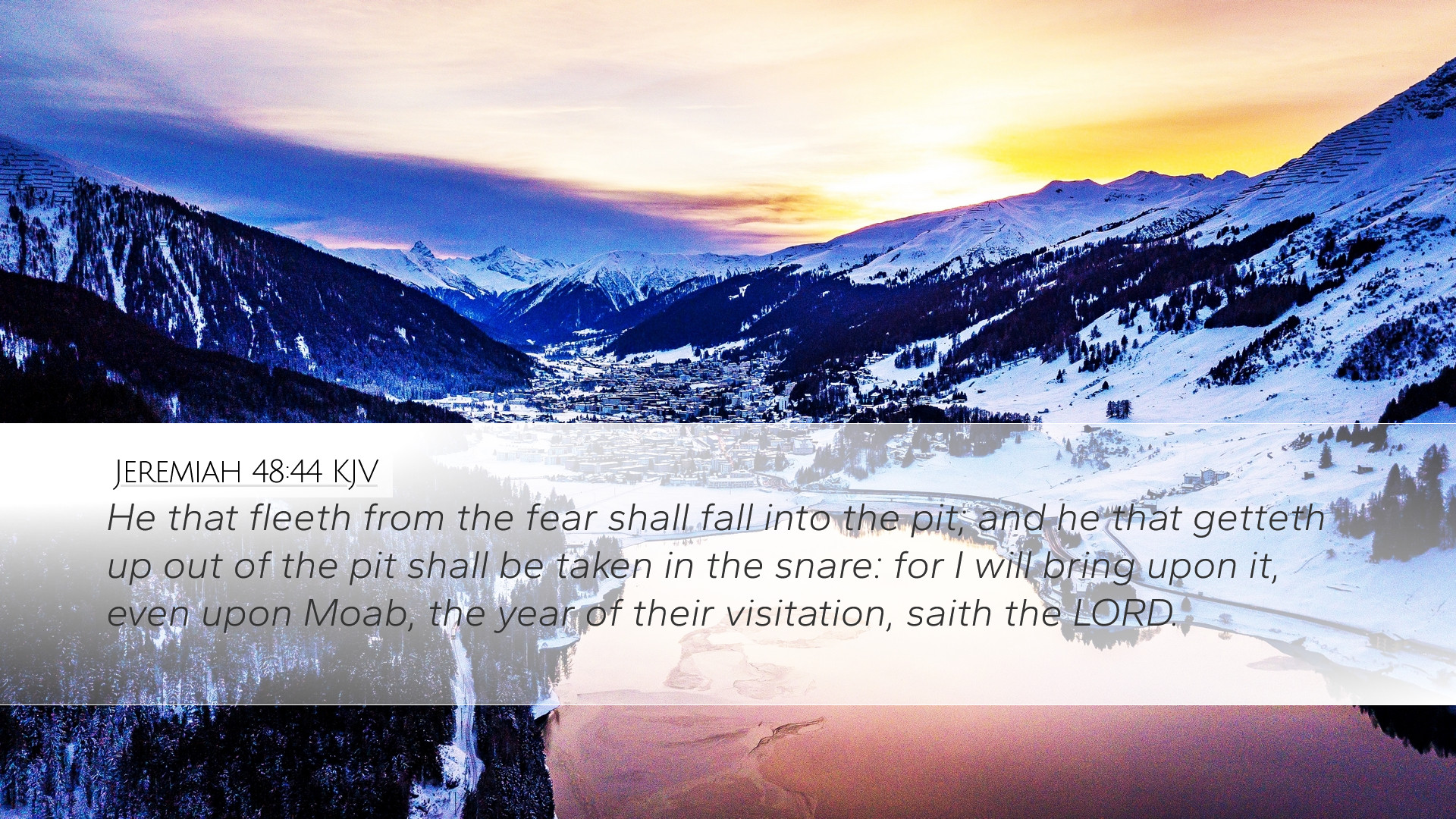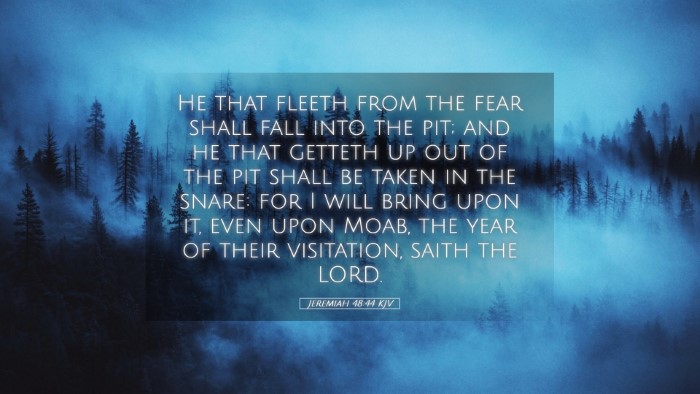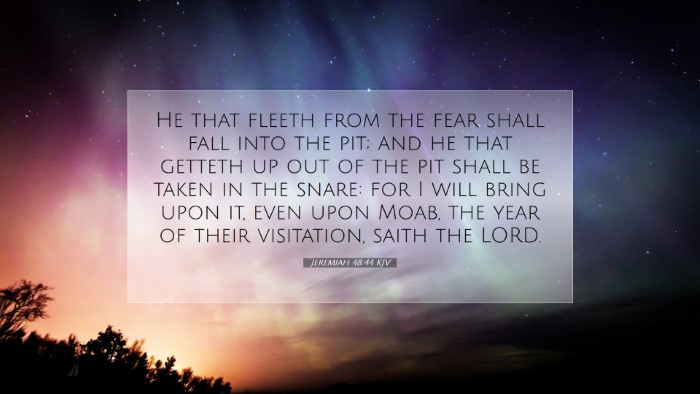Commentary on Jeremiah 48:44
Jeremiah 48:44: "He that fleeth from the fear shall fall into the pit; and he that getteth up out of the pit shall be taken in the snare: for I will bring upon it, even upon Moab, the year of their visitation, saith the LORD."
Introduction
The verse encapsulates a dire prophecy concerning Moab, a nation that historically stood opposed to Israel. Jeremiah, as a prophet, often delivered messages of judgment and warning to various nations, and here he conveys a profound spiritual truth regarding the futility of attempting to escape divine judgment. This commentary synthesizes insights from notable public domain scholars such as Matthew Henry, Albert Barnes, and Adam Clarke to aid pastors, students, theologians, and Bible scholars in understanding the deeper implications of this text.
Theological Insights
-
Divine Judgment:
This verse highlights the sovereignty of God in enacting judgment. Henry remarks on God's active role in bringing Moab to account, emphasizing that the "year of their visitation" signifies a predetermined time when God will address the sins of Moab. It serves as a reminder that divine justice cannot be evaded.
-
The Nature of Fear and Flight:
Barnes notes that the "fear" mentioned is indicative of judgment—those who try to flee from it will find that their efforts are futile. This aligns with biblical principles where fear of God leads to wisdom, while fear of man results in snare. The message underscores that true security lies in divine mercy rather than in attempts to escape judgment.
-
The Pit and the Snare:
Clarke interprets the imagery of the pit and the snare as emblematic of the ultimate traps set by sin and disobedience. He suggests that those who think they can evade God's justice will only fall into deeper consequences, a theme that resonates across both testaments, reminding believers of the pervasive nature of sin's penalty.
Contextual Understanding
The context of this verse within the book of Jeremiah is crucial. Jeremiah chapters 46 through 49 provide a series of prophecies against various nations, illustrating God's forthcoming judgment. Moab, historically a hostile neighbor to Israel, represents those who stand apart from God’s covenant. The judgment against Moab is not just a national affair but serves as a warning to all nations, including modern-day believers, about the consequences of turning away from God.
Practical Applications
-
Awareness of God’s Sovereignty:
Readers are reminded that God’s sovereignty encompasses all nations and individuals. Awareness of this can foster a deeper trust in God’s perfect timing in judgment and deliverance.
-
Understanding Consequences:
This passage teaches the reality of consequences for trying to evade God’s call. It is vital for believers to understand that ignoring divine directives can lead them into spiritual traps.
-
Encouragement in Troubling Times:
For those who may seem to be caught in a pit due to their sins, Clarke reassures that repentance is the pathway to restoration. Despite the language of judgment, there is always a promise of hope through acknowledging one’s transgressions before God.
Historical Perspective
Historically, Moab had a checkered relationship with Israel, often marked by conflict. However, their downfall serves as a significant lesson in humility and the recognition of God’s authority. The prophecy in Jeremiah was not merely about Moab but acted as a microcosm of the broader divine narrative concerning human sinfulness and God’s ultimate redemption.
Conclusion
Jeremiah 48:44 stands as a poignant reminder of God’s omnipotence and the certainty of His judgment against unrepentant nations and individuals. For pastors and theologians, it should underscore the importance of teaching about God’s justice balanced with His mercy. For scholars, it offers ample opportunity to explore the interconnectedness of divine judgment and human behavior, ultimately pointing to the necessity of repentance and faith in God’s redemptive plan.


